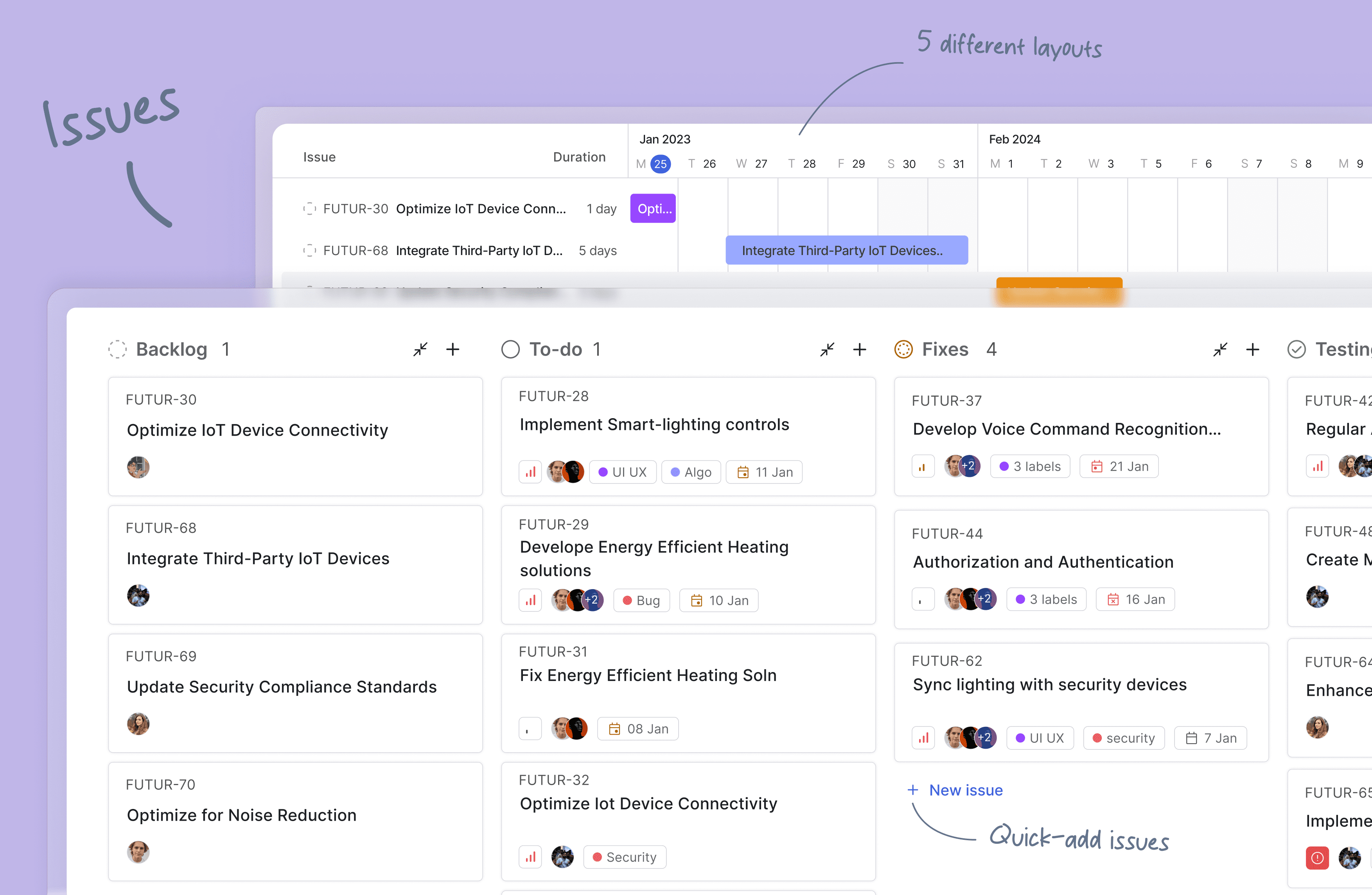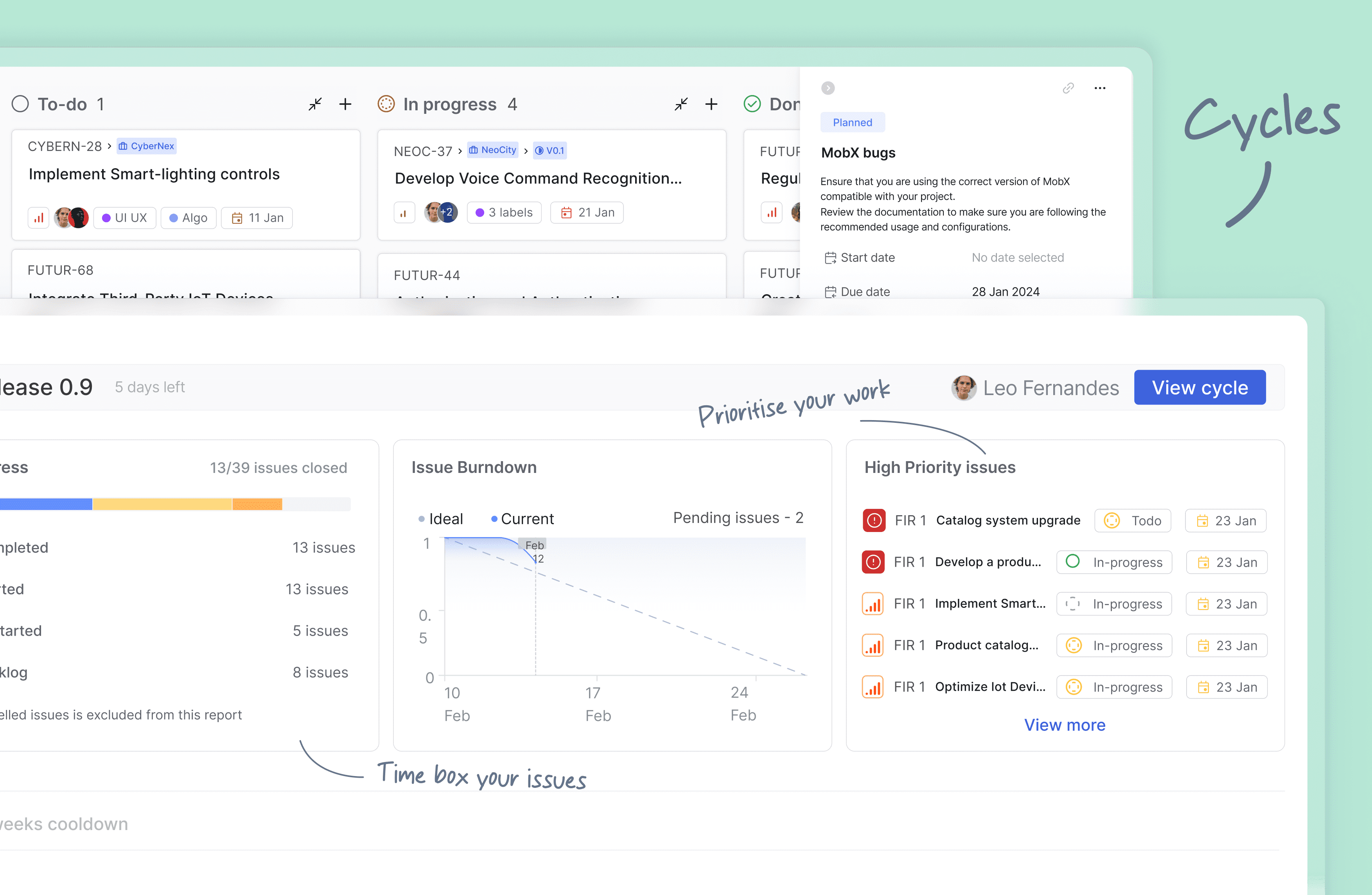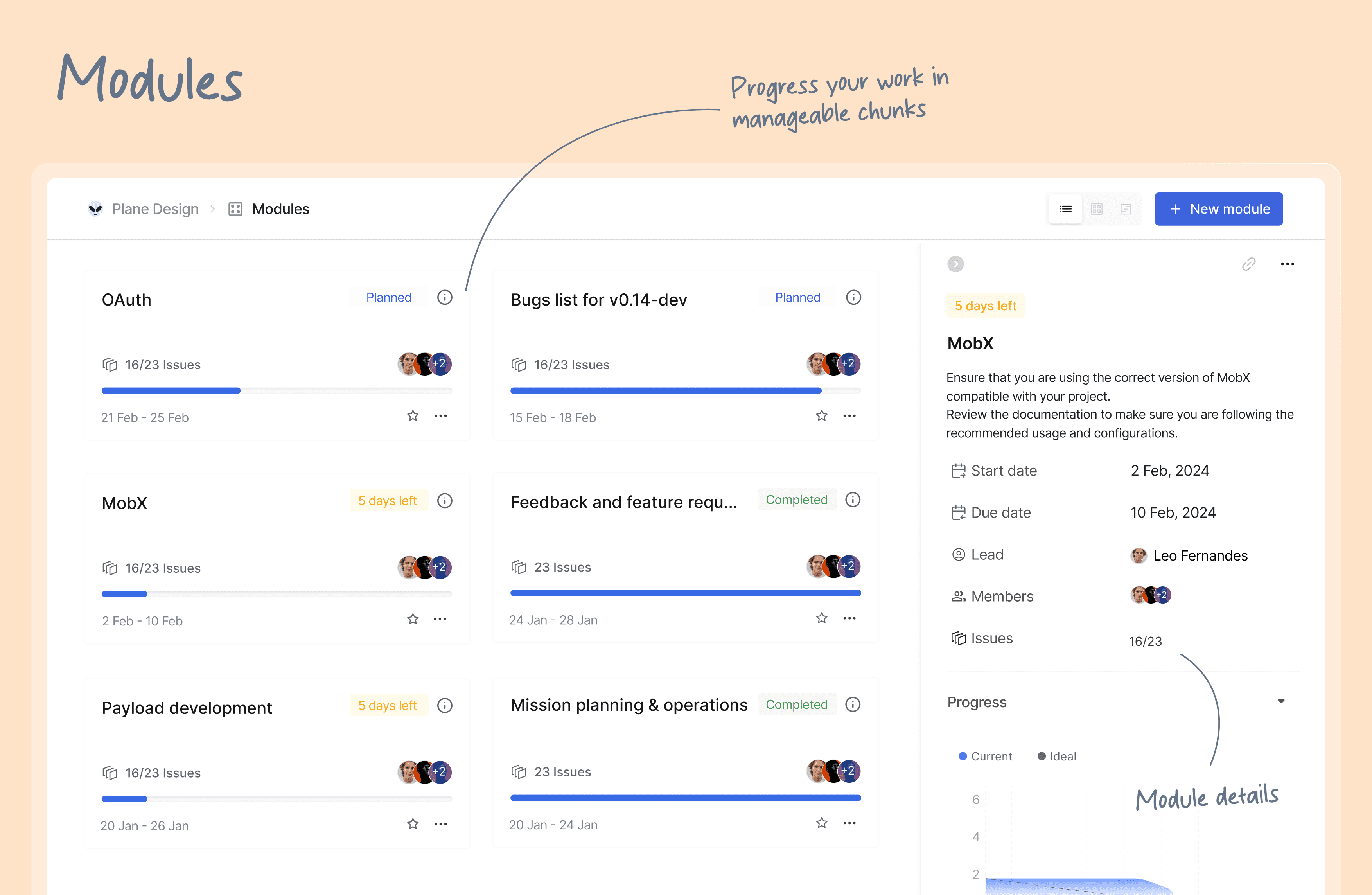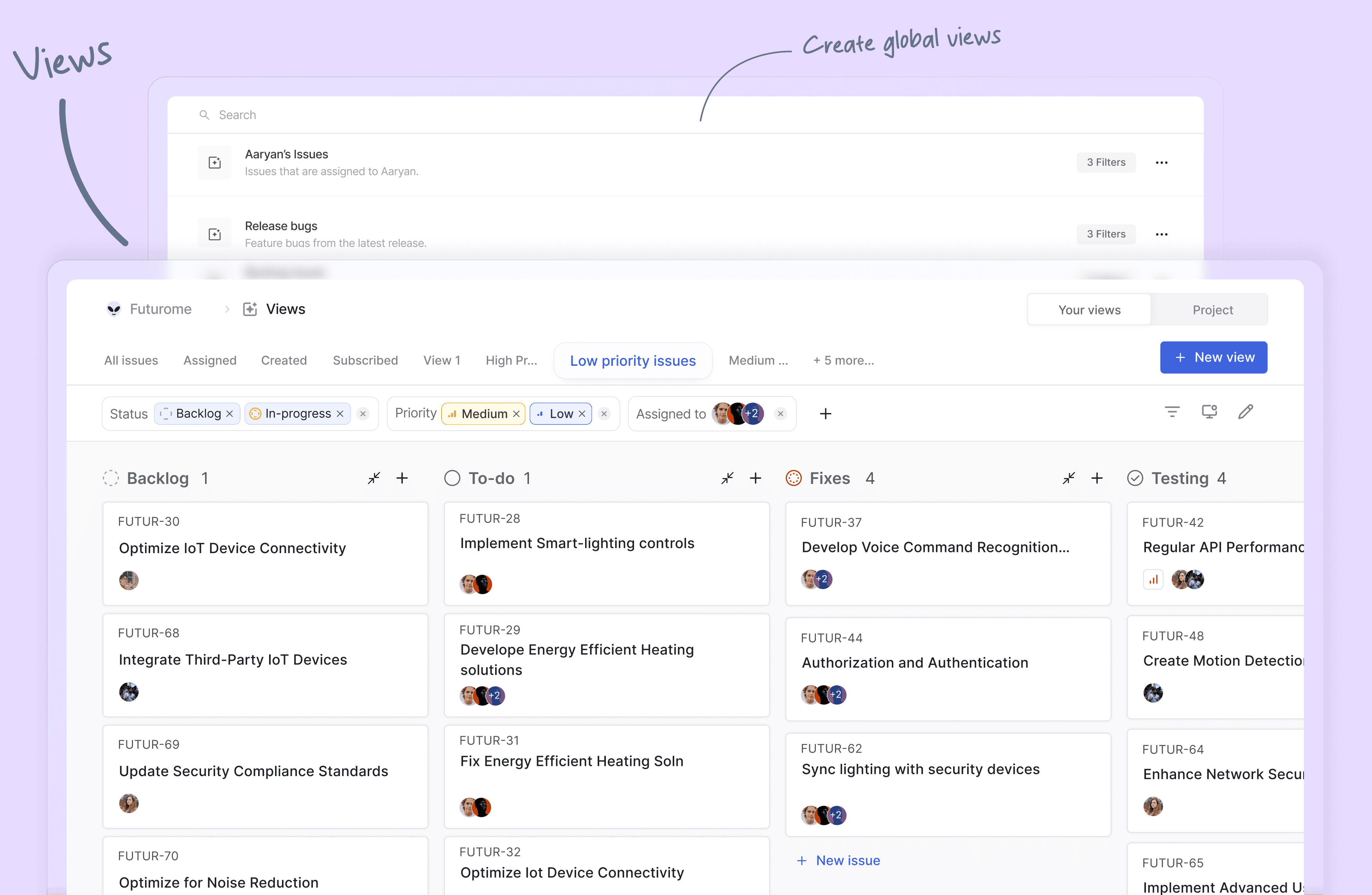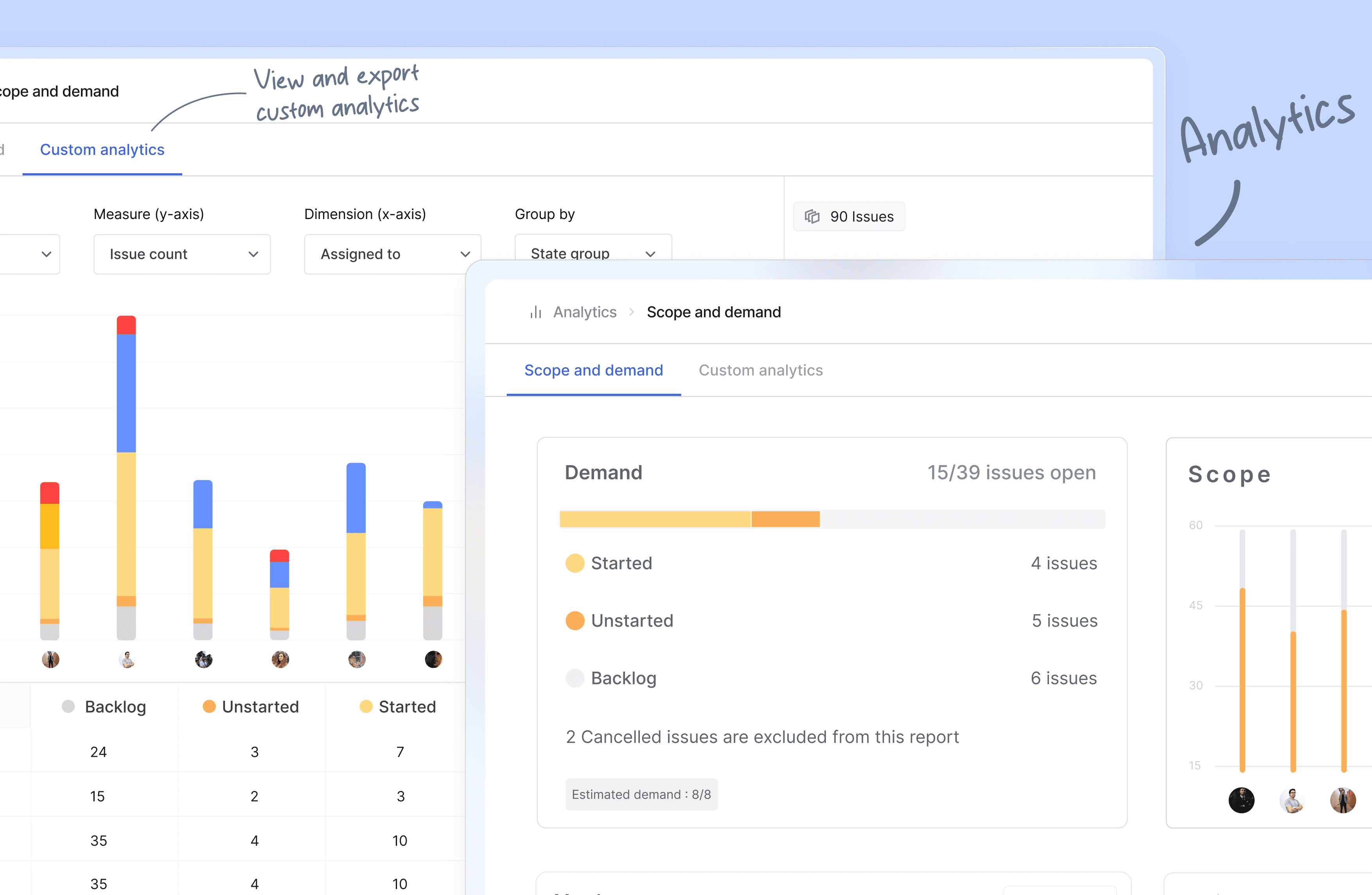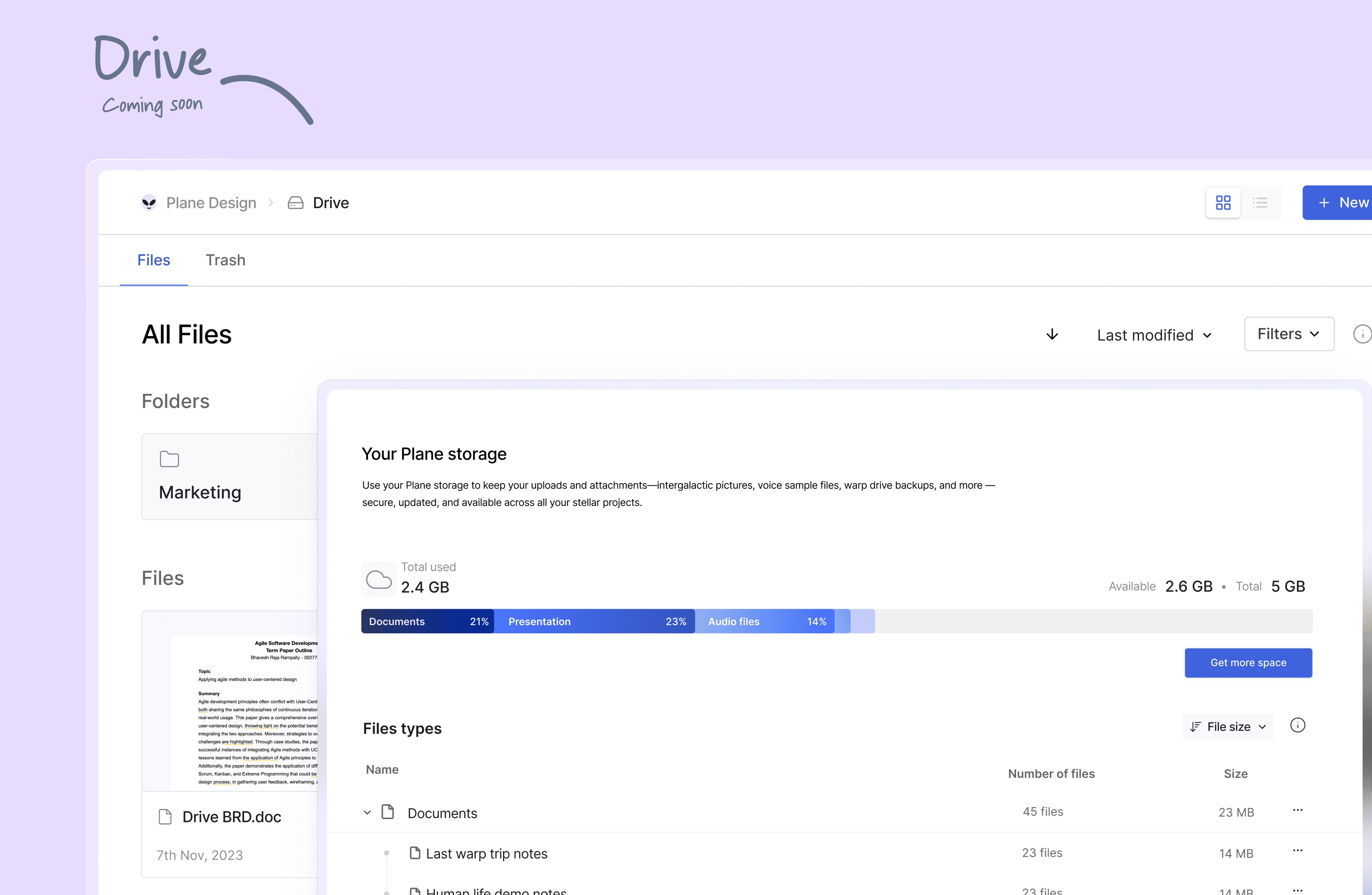Open-source project management that unlocks customer value.
Website • Releases • Twitter • Documentation
Meet Plane. An open-source software development tool to manage issues, sprints, and product roadmaps with peace of mind. 🧘♀️
Plane is still in its early days, not everything will be perfect yet, and hiccups may happen. Please let us know of any suggestions, ideas, or bugs that you encounter on our Discord or GitHub issues, and we will use your feedback to improve in our upcoming releases.
The easiest way to get started with Plane is by creating a Plane Cloud account where we offer a hosted solution for users.
If you want more control over your data, prefer to self-host Plane, please refer to our deployment documentation.
| Installation Methods | Documentation Link |
|---|---|
| Docker |  |
| Kubernetes |  |
Instance admin can configure instance settings using our God-mode feature.
-
Issues: Quickly create issues and add details using a powerful rich text editor that supports file uploads. Add sub-properties and references to problems for better organization and tracking.
-
Cycles: Keep up your team's momentum with Cycles. Gain insights into your project's progress with burn-down charts and other valuable features.
-
Modules: Break down your large projects into smaller, more manageable modules. Assign modules between teams to track and plan your project's progress easily.
-
Views: Create custom filters to display only the issues that matter to you. Save and share your filters in just a few clicks.
-
Pages: Plane pages, equipped with AI and a rich text editor, let you jot down your thoughts on the fly. Format your text, upload images, hyperlink, or sync your existing ideas into an actionable item or issue.
-
Analytics: Get insights into all your Plane data in real-time. Visualize issue data to spot trends, remove blockers, and progress your work.
-
Drive (coming soon): The drive helps you share documents, images, videos, or any other files that make sense to you or your team and align on the problem/solution.
Development system must have docker engine installed and running.
Setting up local environment is extremely easy and straight forward. Follow the below step and you will be ready to contribute -
- Clone the code locally using:
git clone https://github.com/makeplane/plane.git - Switch to the code folder:
cd plane - Create your feature or fix branch you plan to work on using:
git checkout -b <feature-branch-name> - Open terminal and run:
./setup.sh - Open the code on VSCode or similar equivalent IDE.
- Review the
.envfiles available in various folders. Visit Environment Setup to know about various environment variables used in system. - Run the docker command to initiate services:
docker compose -f docker-compose-local.yml up -d
You are ready to make changes to the code. Do not forget to refresh the browser (in case it does not auto-reload).
Thats it!
The Plane community can be found on GitHub Discussions, and our Discord server. Our Code of conduct applies to all Plane community chanels.
Ask questions, report bugs, join discussions, voice ideas, make feature requests, or share your projects.
If you believe you have found a security vulnerability in Plane, we encourage you to responsibly disclose this and not open a public issue. We will investigate all legitimate reports.
Email [email protected] to disclose any security vulnerabilities.
There are many ways to contribute to Plane, including:
- Submitting bugs and feature requests for various components.
- Reviewing the documentation and submitting pull requests, from fixing typos to adding new features.
- Speaking or writing about Plane or any other ecosystem integration and letting us know!
- Upvoting popular feature requests to show your support.





